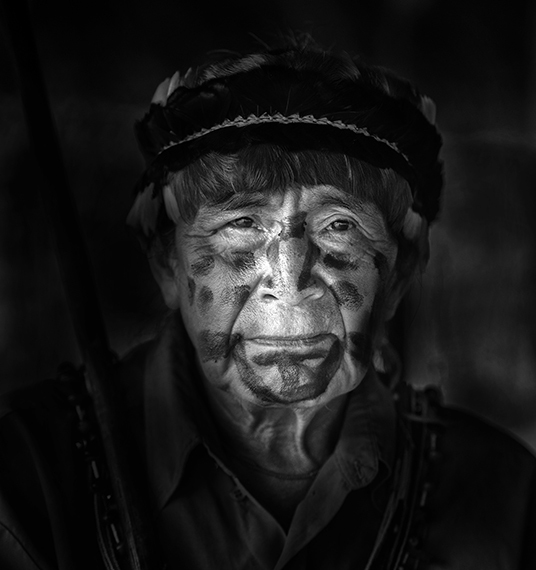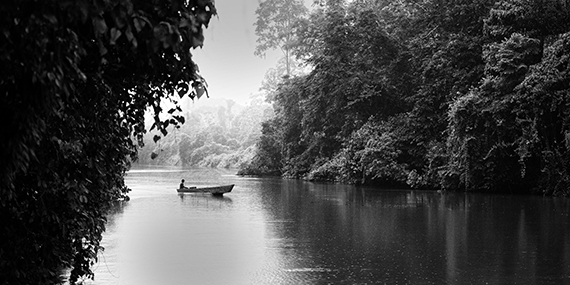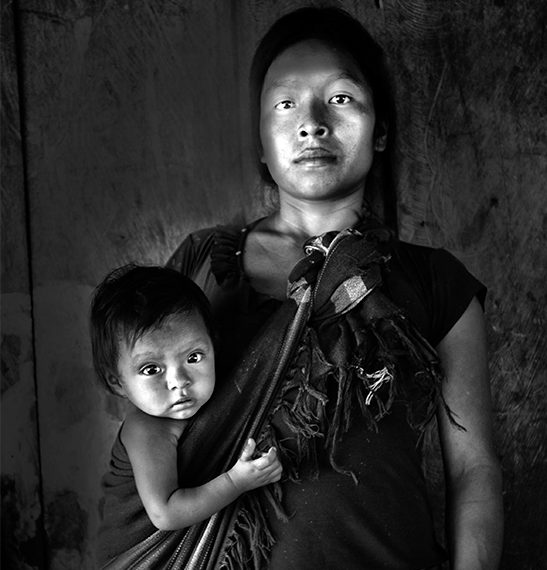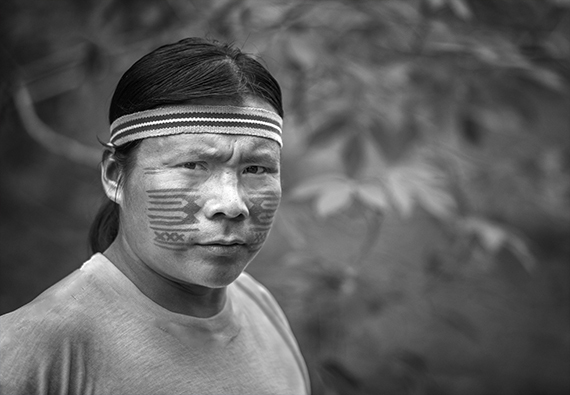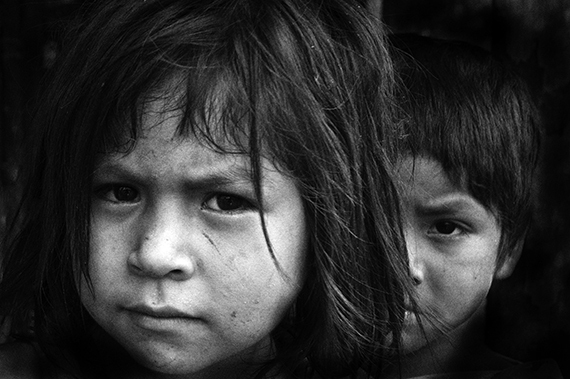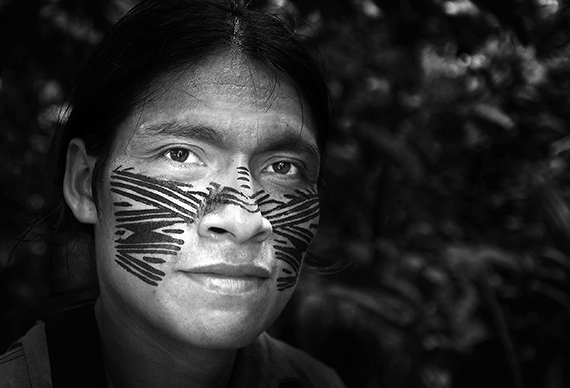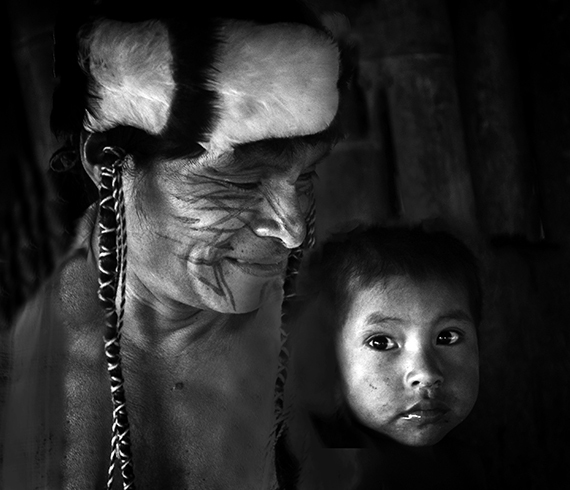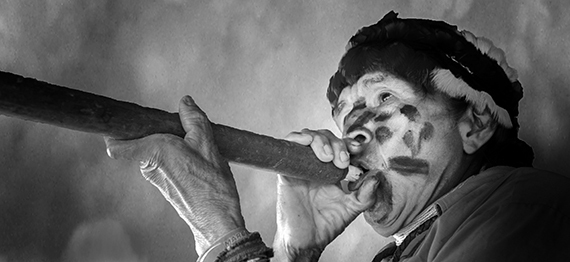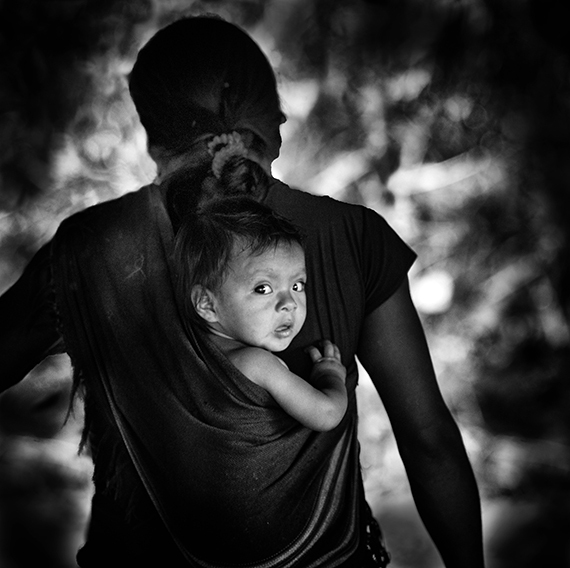The Pastaza and Kawapi Rivers in Ecuador come together near the border of Peru. At their confluence fresh water pink dolphins rise to the surface and nod their heads. Nearby toucans and parrots land. These animals and many more are a part of the ecosystem that is as pure and unadulterated as any in the world.
The Achuar, an indigenous people of the Amazon rainforest, also inhabit this jungle. They live in harmony and reverence of the rivers, trees, and animals that inhabit their spectacular surroundings. The rainforest is where the Achuar find their food, medicines, and raw materials to construct anything they need. This is also their sacred place of worship. The Achuar live without electricity, automobiles, or roads. They hunt with blowguns and curare darts. The Achuar believe the dreams they have while consuming hallucinogenic plants all come true. They are self sufficient, needing nothing from the outside world.
I spent a week with the Achuar. We talked about their hopes and dreams but mainly we talked about their fears. When the Achuar are asked what they fear their universal answer is "Oil Companies." They have been told there is oil under their jungle and the outside world wants it. The Achaur know what has happened in other parts of Ecuador and Peru where drilling has occurred. The petroleum industry has been in Ecuador and Peru for many years.
The Achuar have been told the health of their children will suffer when the oil companies come. The Achuar have been told the oil companies will be careless causing still births, cancer, and birth defects. Reports verify these fears.
It has been reported that Texaco and Petroecuador dumped millions of gallons of crude oil directly into nine-hundred unlined open pits. These pits occur on land occupied by other indigenous tribes in northern Ecuador. Moreover, other reports indicate billions of gallons of toxic wastewater have been poured into rivers and streams. No one denies the dumping occurred. Chevron, which acquired Texaco in 2001, has avoided meaningful cleanup.
Chevron claims the Ecuadoran government is responsible for the cleanup. The Ecuadoran government claims Chevron is responsible. This means the clean up will not occur and the indigenous people continue to suffer.
Chevron has gone worldwide to fight a judgment against the corporation in Ecuador. I wonder how much Chevron has paid in legal fees and how far that would have gone in a cleanup. It is reported Chevron has hired 60 law firms during its defense. I wonder if Chevron ever considers moral and ethical responsibility even if legal responsibility does not exist. Apparently not.
The president of Ecuador, Rafael Correa, does not seem to be looking for solutions either. He has attempted to stifle dissent and quiet those in Ecuador that speak for the indigenous people of the Amazon. Correa ordered the breakup of "Fundacion Paccamama," the group that was the voice of the indigenous people of Ecuador
So the Achuar people just wait, in fear.

